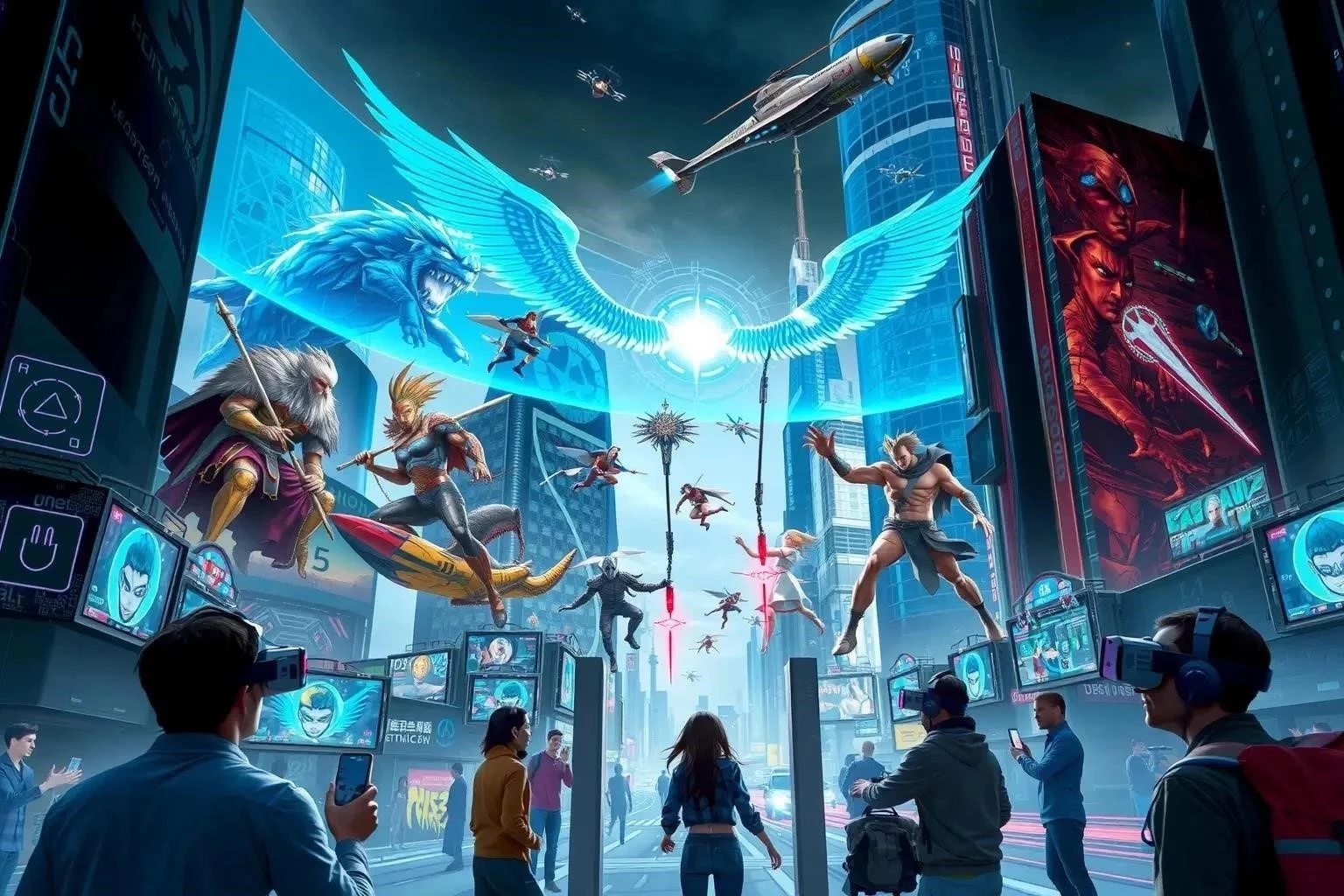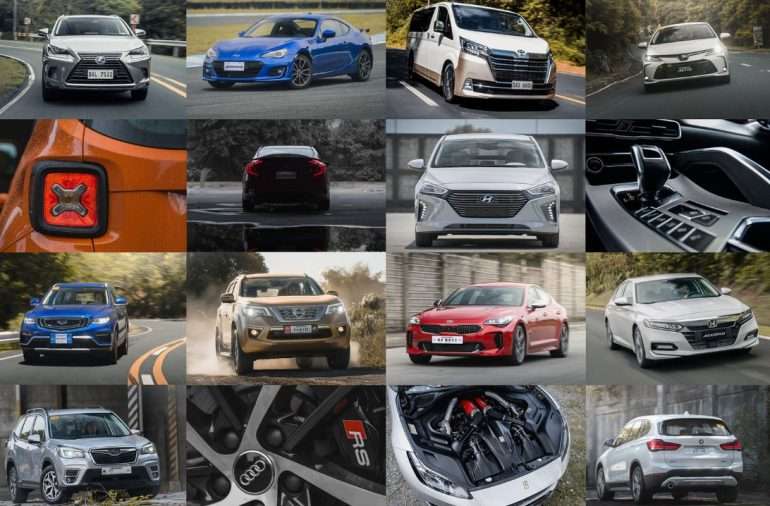The landscape of MMORPG games in 2025 is poised to be dramatically different from what players experience today․ We’re looking at a future brimming with advancements in virtual reality integration, AI-driven narratives, and unprecedented levels of player agency․ Imagine persistent worlds that react dynamically to your choices, characters that feel genuinely alive, and combat systems that demand skill and strategy․ Get ready to dive into a world where the lines between reality and virtuality blur, and where MMORPG games in 2025 offer immersive experiences beyond our wildest dreams․
The Evolution of Immersion: VR and AR Integration
One of the most significant changes we can anticipate is the deeper integration of virtual reality (VR) and augmented reality (AR) technologies․ While current VR MMORPGs offer a taste of this, 2025 promises more refined and accessible experiences․ We’re talking haptic suits that simulate realistic sensations, advanced eye-tracking for intuitive interaction, and AR overlays that blend the game world with your physical surroundings․ This will allow for a level of presence and engagement previously unimaginable․
Key Advancements in VR/AR MMORPGs
- Haptic Feedback Systems: Feel the impact of blows, the texture of materials, and the weight of your weapons․
- Advanced Motion Tracking: Precise and responsive movement tracking for seamless control within the game․
- Personalized VR Environments: Customizable VR spaces that adapt to individual player preferences․
AI-Driven Narratives and Dynamic Worlds
Forget static questlines and predictable storylines․ In 2025, AI will be the driving force behind dynamic narratives that evolve based on player actions and choices․ Non-player characters (NPCs) will possess more complex personalities, react realistically to player behavior, and even form alliances or rivalries based on in-game events․ The world itself will be a living, breathing ecosystem that responds to player activity, creating a truly unique and unpredictable experience․
Examples of AI-Driven World Changes
- Resource Depletion: Over-harvesting of resources by players leads to scarcity and economic shifts․
- NPC Reputation: Positive or negative interactions with NPCs affect your standing within their communities․
- Dynamic Events: Unexpected events triggered by player actions or environmental factors․
Player Agency and Emergent Gameplay
The future of MMORPGs isn’t just about better graphics or more immersive technology; it’s about giving players more control over their own stories․ Expect systems that allow for greater customization of characters, skills, and even the game world itself․ Emergent gameplay, where unexpected and unscripted events arise from player interactions, will become a core element of the MMORPG experience․ Imagine forging your own path, shaping the world around you, and becoming a legend in your own right․
FAQ: MMORPGs of the Future
Q: Will current PCs be able to handle these advanced MMORPGs?
A: While advancements in optimization will certainly occur, it’s likely that high-end PCs will be required to fully experience the most visually impressive and technologically advanced MMORPGs of 2025․ Cloud gaming may also play a role in reducing hardware demands․
Q: Will there be new genres of MMORPGs?
A: Absolutely! We anticipate seeing new genres emerge that leverage the power of VR/AR and AI․ Think collaborative world-building games, social simulation MMORPGs, and even educational MMORPGs․
Q: How will combat systems evolve?
A: Combat systems will likely become more skill-based and less reliant on automated rotations․ We can expect to see more emphasis on tactical positioning, timing, and utilizing environmental elements to your advantage․
Ultimately, the future of the MMORPG genre is incredibly bright․ With advancements in VR, AI, and player agency, MMORPG games in 2025 are set to deliver experiences that are more immersive, engaging, and personalized than ever before․
The landscape of MMORPG games in 2025 is poised to be dramatically different from what players experience today․ We’re looking at a future brimming with advancements in virtual reality integration, AI-driven narratives, and unprecedented levels of player agency․ Imagine persistent worlds that react dynamically to your choices, characters that feel genuinely alive, and combat systems that demand skill and strategy․ Get ready to dive into a world where the lines between reality and virtuality blur, and where MMORPG games in 2025 offer immersive experiences beyond our wildest dreams․
One of the most significant changes we can anticipate is the deeper integration of virtual reality (VR) and augmented reality (AR) technologies․ While current VR MMORPGs offer a taste of this, 2025 promises more refined and accessible experiences․ We’re talking haptic suits that simulate realistic sensations, advanced eye-tracking for intuitive interaction, and AR overlays that blend the game world with your physical surroundings․ This will allow for a level of presence and engagement previously unimaginable․
- Haptic Feedback Systems: Feel the impact of blows, the texture of materials, and the weight of your weapons․
- Advanced Motion Tracking: Precise and responsive movement tracking for seamless control within the game․
- Personalized VR Environments: Customizable VR spaces that adapt to individual player preferences․
Forget static questlines and predictable storylines․ In 2025, AI will be the driving force behind dynamic narratives that evolve based on player actions and choices․ Non-player characters (NPCs) will possess more complex personalities, react realistically to player behavior, and even form alliances or rivalries based on in-game events․ The world itself will be a living, breathing ecosystem that responds to player activity, creating a truly unique and unpredictable experience․
- Resource Depletion: Over-harvesting of resources by players leads to scarcity and economic shifts․
- NPC Reputation: Positive or negative interactions with NPCs affect your standing within their communities․
- Dynamic Events: Unexpected events triggered by player actions or environmental factors․
The future of MMORPGs isn’t just about better graphics or more immersive technology; it’s about giving players more control over their own stories․ Expect systems that allow for greater customization of characters, skills, and even the game world itself․ Emergent gameplay, where unexpected and unscripted events arise from player interactions, will become a core element of the MMORPG experience․ Imagine forging your own path, shaping the world around you, and becoming a legend in your own right․
A: While advancements in optimization will certainly occur, it’s likely that high-end PCs will be required to fully experience the most visually impressive and technologically advanced MMORPGs of 2025․ Cloud gaming may also play a role in reducing hardware demands․
A: Absolutely! We anticipate seeing new genres emerge that leverage the power of VR/AR and AI․ Think collaborative world-building games, social simulation MMORPGs, and even educational MMORPGs․
A: Combat systems will likely become more skill-based and less reliant on automated rotations․ We can expect to see more emphasis on tactical positioning, timing, and utilizing environmental elements to your advantage․
Ultimately, the future of the MMORPG genre is incredibly bright․ With advancements in VR, AI, and player agency, MMORPG games in 2025 are set to deliver experiences that are more immersive, engaging, and personalized than ever before․
The Metaverse Integration: A Seamless Transition
Beyond individual game experiences, the integration of MMORPGs into the broader metaverse ecosystem will be a defining characteristic of the genre in 2025․ Expect interoperability between different game worlds, allowing players to seamlessly transition characters, items, and even progress from one MMORPG to another․ This interconnectedness will foster a sense of shared identity and community across multiple virtual realms, creating a true meta-experience that transcends the limitations of individual games․
Features of Metaverse-Integrated MMORPGs
- Cross-Game Asset Ownership: Acquire and utilize items across multiple compatible MMORPGs․
- Unified Social Systems: Maintain a consistent social identity and connect with friends across different game worlds․
- Interoperable Skill Systems: Transfer learned skills and abilities between compatible MMORPGs, allowing for character progression that spans multiple universes․
The Rise of Blockchain and Play-to-Earn Mechanics
While the long-term implications are still unfolding, blockchain technology is poised to significantly impact the MMORPG landscape by 2025․ Play-to-earn (P2E) mechanics, powered by blockchain, will offer players the opportunity to earn real-world value through their in-game activities․ This could revolutionize the way players engage with MMORPGs, transforming them from purely recreational pursuits into potential sources of income․ However, ethical considerations and regulatory hurdles will need careful navigation to ensure a sustainable and equitable P2E ecosystem․
Potential Benefits and Challenges of Blockchain MMORPGs
| Benefits | Challenges |
|---|---|
| Real-world value for in-game achievements | Potential for speculation and market volatility |
| True ownership of digital assets | Scalability and transaction fee issues |
| Enhanced security and transparency | Regulatory uncertainty and potential for exploitation |
Ethical Considerations and the Future of Community
As MMORPGs become more immersive and integrated into our lives, it is crucial to address the ethical considerations that arise․ Issues such as virtual addiction, online harassment, and the potential for economic exploitation within P2E systems will require careful attention and proactive solutions․ Furthermore, fostering healthy and inclusive online communities will be paramount to ensuring that MMORPGs remain positive and enriching experiences for all players․ This will necessitate robust moderation systems, clear codes of conduct, and a commitment to creating safe and welcoming virtual spaces․





